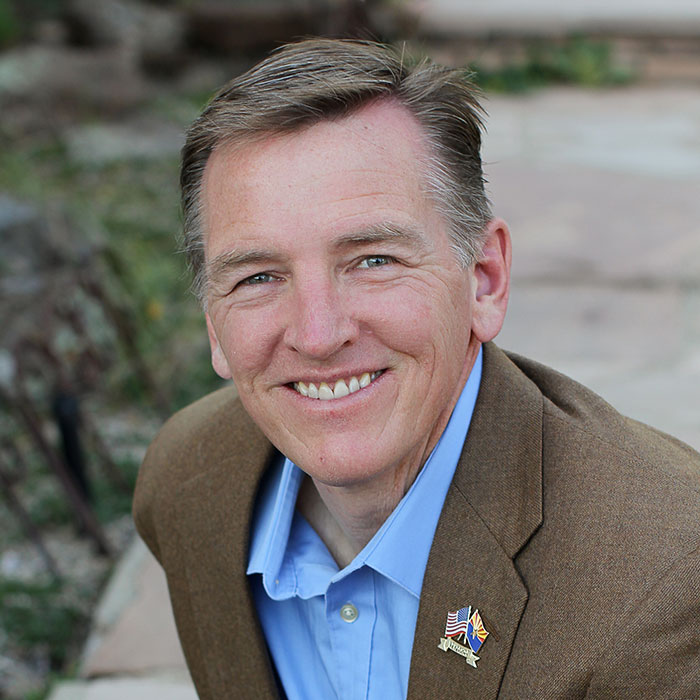Constitutional Issues
|
Our Constitution is the cornerstone of our Republic and is the greatest governing document in history. At the conclusion of the Constitutional Convention in 1787, one of our greatest founding fathers, Benjamin Franklin, was asked what kind of Government the Constitution gave us, “a Republic or a Monarchy?” “A Republic,” Franklin replied, “If you can keep it.” How true Franklin’s words were and how prophetic they have proven to be. As your Congressman, it is my duty to support and defend the Constitution and to protect our Republic. When I took office, I took the following oath: “I, Paul Gosar, do solemnly swear that I will support and defend the Constitution of the United States against all enemies, foreign and domestic; that I will bear true faith and allegiance to the same; that I take this obligation freely, without any mental reservation or purpose of evasion; and that I will well and faithfully discharge the duties of the office on which I am about to enter. So help me God” I took that oath as a solemn vow to the American people that I would honor the Constitution of the United States, and I strive every day to uphold my promise.
“I will not attempt to discover whether legislation is ‘needed’ before I have first determined whether it is constitutionally permissible.”—Sen. Barry Goldwater. First and foremost, I consult our Constitution. I believe our Constitution is a sacred charter that, along with strong biblical values, made our nation great. I ask, "does the Constitution allow this? Or, does the Constitution prohibit this." My office has been singled out for going "above and beyond" the call of duty when discussing the constitutional basis for my bills. I believe in an originalist interpretation of the text of the Constitution, and I believe that courts have placed an improper emphasis on the precedents of prior Courts instead of basing their judgments on the text of the Constitution. Courts sometimes get cases dreadfully wrong and create law from the bench, as the Supreme Court did in Dred Scott v. Sandford and Roe v. Wade. It is the responsibility of the Court to interpret the Constitution rather than to rely on wrongly decided cases as settled law. As part of this originalist interpretation, I believe that we should maintain a proper separation of powers among the three branches of our federal government. Our Founders wisely included a system of checks and balances in our Constitution to prevent any branch of government from becoming too powerful. Our first president, George Washington, actually feared a return to British-style monarchical rule so much that he refused to run for a third term. He understood well that the separation of powers would be a safeguard against tyranny. Since the days of Washington, presidents have greatly expanded the powers of the executive branch through the use of executive orders, and the Supreme Court has usurped many of the lawmaking functions of Congress. The powers not delegated to the United States by the Constitution, nor prohibited by it to the states, are reserved to the states respectively, or to the people. I am a firm believer that if the Constitution does not explicitly delegate powers to the federal government, the issues should be reserved to the states. In most cases, state and local governments are much more equipped to deal with these issues. I will seek to ensure that our federal government remains a limited government by honoring the text of the Tenth Amendment. As your Congressman, I will fight to reclaim the lawmaking responsibility of the legislative branch and ensure that the proper separation of powers is maintained. |

 Increasingly, our constitutional liberties have been under attack from progressives who view the Constitution as a “living document.” While I believe that the application of our laws must adapt as society changes and modernizes, I do not believe that the fundamental freedoms promised to us in the Constitution should ever be abandoned. We have a process to amend the Constitution, and that process is intentionally difficult. The Founders labored to come up with our original Constitution and rightly believed that future sessions of Congress should solemnly reflect when seeking to amend it. For this reason, they set the bar extremely high for a constitutional amendment to pass. As such, the document has only been amended 27 times in our nation’s history.
Increasingly, our constitutional liberties have been under attack from progressives who view the Constitution as a “living document.” While I believe that the application of our laws must adapt as society changes and modernizes, I do not believe that the fundamental freedoms promised to us in the Constitution should ever be abandoned. We have a process to amend the Constitution, and that process is intentionally difficult. The Founders labored to come up with our original Constitution and rightly believed that future sessions of Congress should solemnly reflect when seeking to amend it. For this reason, they set the bar extremely high for a constitutional amendment to pass. As such, the document has only been amended 27 times in our nation’s history.